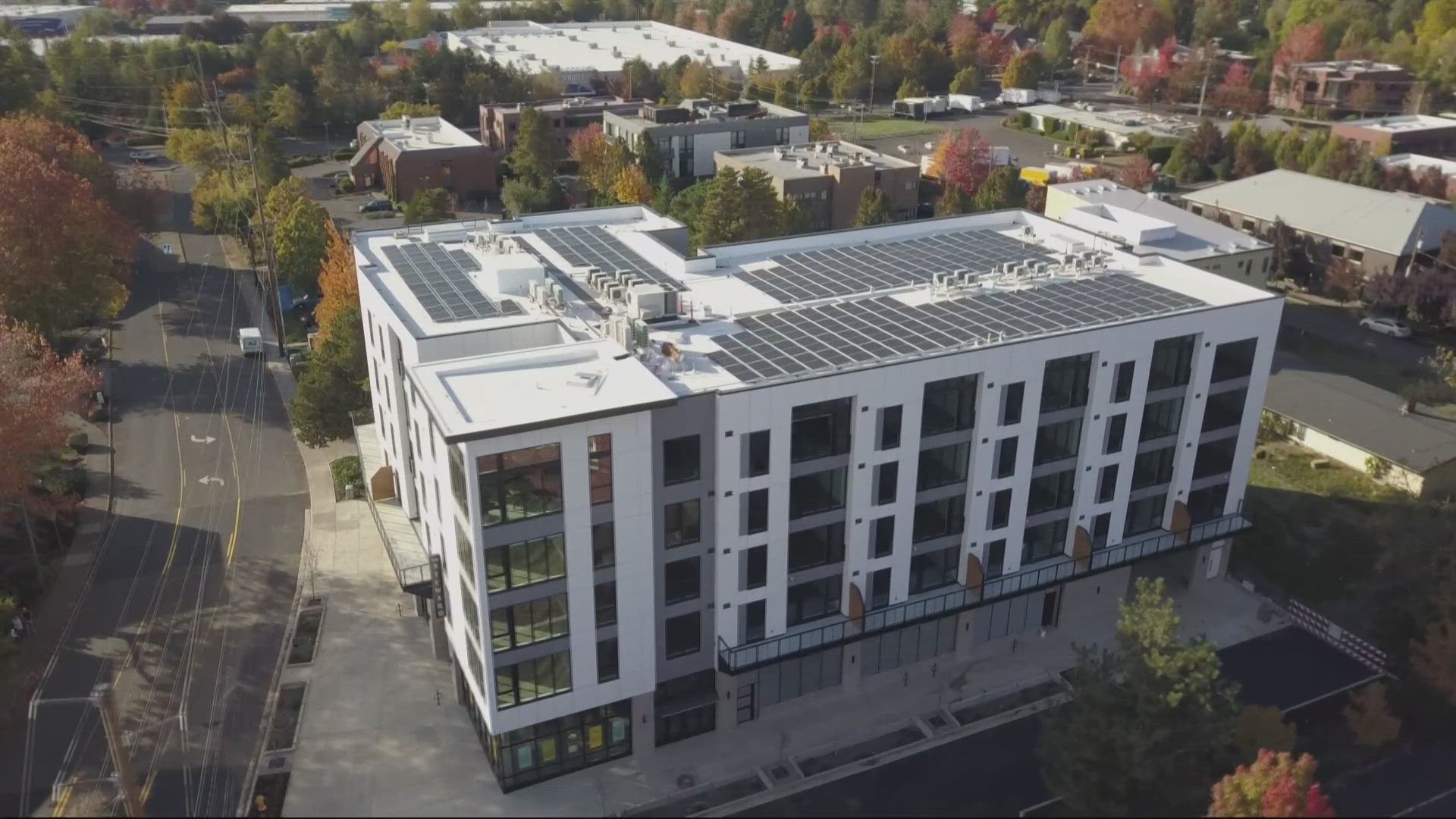PORTLAND, Ore. — In the Tigard Triangle — the northeast corner of town bound by Interstate-5, HWY-217 and 99W — is a building and a blueprint for zero emission operations.
"The Steward is the first multi-family building in the state of Oregon to achieve path to net zero," said Josh Daniels, co-founder of DIG Real Estate.
The "path to net zero" is a set of building guidelines from the Energy Trust of Oregon that sets a high bar for new development in the state when it comes to electricity usage. And while those guidelines typically come with a heavier upfront price tag, Energy Trust offsets some of that "green premium" with incentives and access to efficiency expertise.
As for the building, "It has achieved a new level of energy efficiency. The energy that the building creates goes a very long way to offsetting the energy that the building requires to operate," Josh Daniels said.
The Steward is an all-electric, five-story and 55-unit apartment building designed to have the lowest operating carbon footprint possible.
"We have a 103-kilowatt photovoltaic array on the roof just above us here and that is as clean of energy as you can find," he said.


While rooftop solar is not unique, giving residents a cut is.
"We actually think there are going to be many months in which residents don't have an electricity bill," Josh Daniels said.
Taking another unique position, the design at the Steward brings plentiful electric vehicle charging. Upon opening, the building is wired so that there's one dedicated EV charging spot for every three units.
"We have the potential to scale that up through the future proofing that we did to nearly one to one," he said. said.
That's a major plus for the state's EV adoption goals.
The objective was clear for brothers Josh and Brenner Daniels of DIG Real-estate: Put climate goals first without sacrificing aesthetics.
"We made an intentional decision on the design front to bring our mechanical off of the exterior wall, which allows for the very large glazing package that we have over here on the window," Brenner Daniels said. "The windows have strong R-values. In addition to the windows, we actually have enhanced the insulation on exterior walls and the roof as well, which creates a really tight box."


The added insulation in the design provides extra soundproofing "horizontally between apartments as well as vertically between apartments."
Some of the units have extra high ceilings, and induction ranges — there is no natural gas on the premises. And despite the tight insulation, an air makeup system circulates fresh air throughout.
"It's called it's called an ERV or energy recovery ventilator, and what it's doing is continuing to supply fresh air in the apartment," Brenner Daniels said.
Josh Daniels said there were hurdles.
"It would have been a lot easier to do the status quo in development, which is what we see in our market generally. We took it as a challenge," he said. "Nobody has done it before and so it was something that we wanted to take on. We're very pleased to have an all-electric building."

